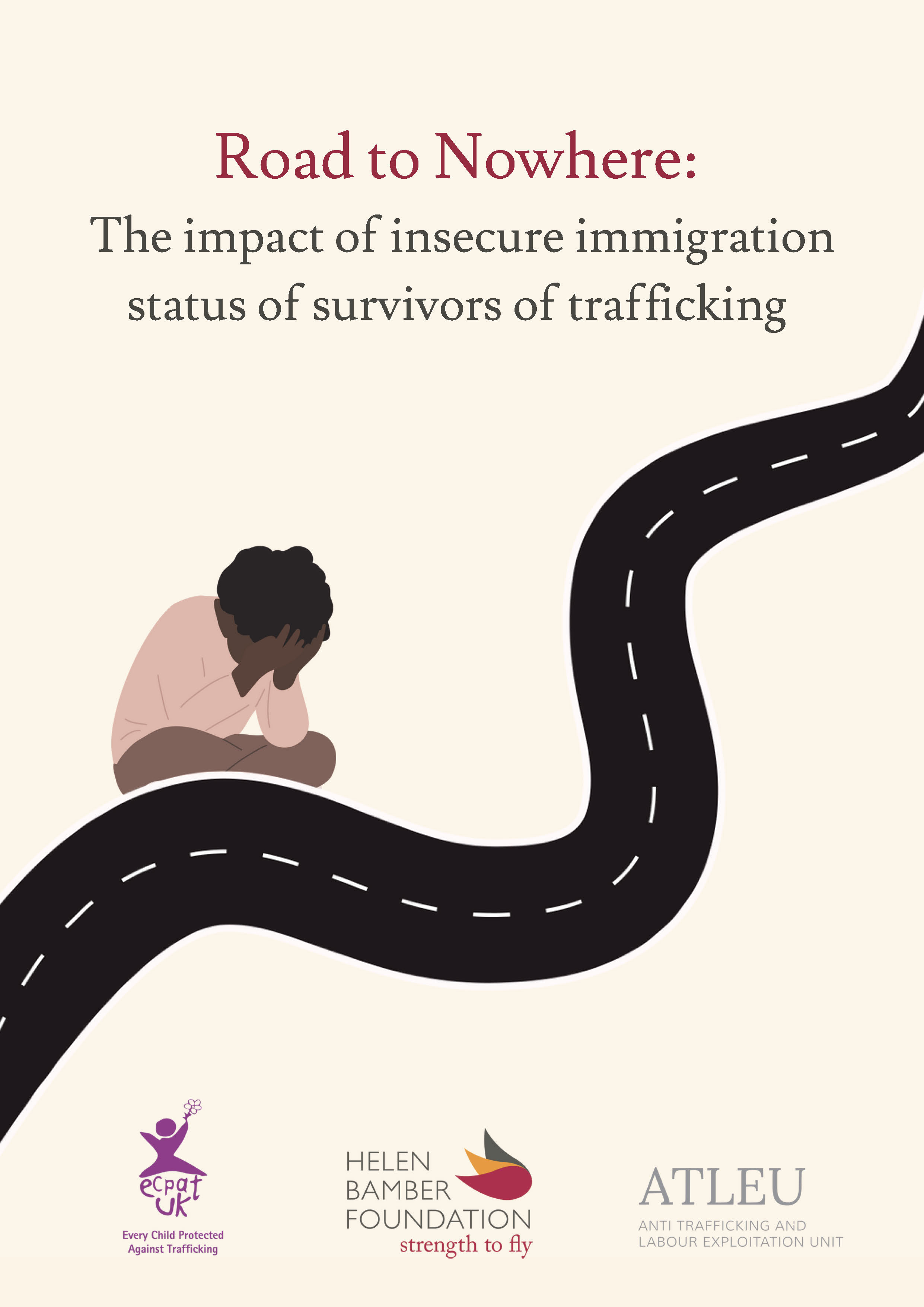Thousands of confirmed trafficking victims denied permission to stay in the UK and left at risk, new report shows
New data reveals that while over 4,240 non-British nationals were confirmed to be victims of trafficking in 2024, only 176 victims were granted permission to stay in the UK (‘leave to remain’) - just 4%. 4,064 adults were refused a grant of leave, despite many needing to stay in the country for their recovery and to assist with the prosecution of their traffickers. Almost half (over 40%) of those who were granted leave were given less than 12 months, denying them much-needed security and stability to recover from trauma.
In the same year, there were 699 confirmed child victims who needed immigration leave, but less than five received temporary permission to stay as victims. The data is part of a new report published by the Helen Bamber Foundation, ATLEU and ECPAT UK - 'Road to Nowhere: The impact of insecure immigration status on survivors of trafficking'.
Non-British nationals who are confirmed as ‘victims of trafficking’ by the National Referral Mechanism (NRM) – the UK framework designed for identifying and protecting victims of trafficking and modern slavery – can be eligible for a grant of ‘temporary permission to stay’ (‘leave to remain’ or ‘VTS Leave’). This is vital for them to work and access support services, such as therapy. Without this, they are pushed into poverty, destitution and isolation, and are even more vulnerable to abuse, exploitation and re-trafficking.
It also has a profound impact on their mental health. Survivors are constantly afraid and anxious about the possibility of being removed from the UK or being held in detention, deterring many from coming forward to seek help.
For children, lack of secure immigration status can be particularly damaging. It affects their ability to engage in education, feel safe in care placements, or plan for their future. It also increases their risk of going missing or being re-trafficked, especially if they are in the UK unaccompanied and alone.
Without leave to remain, survivors are left in limbo, and many rely on the asylum system as the only way of ensuring they get secure immigration status. This is despite the high risk of being re-trafficked if returned to their country of origin or left living precariously in the UK. But worryingly, the government is committed to swiftly returning people from countries such as Albania and Vietnam without fully considering their asylum claims, which has resulted in fewer survivors of trafficking are being granted refugee status.

Kamena Dorling, Director of Policy, at Helen Bamber Foundation, said:
“The current system is bureaucratic, re-traumatising and clearly isn’t working. Rather than making survivors provide more and more evidence as to why they should stay in the UK, we need to move to a system where they are automatically given secure immigration status. Granting survivors a longer period of leave to remain allows them to meaningfully engage with police investigations and prosecutions when they are ready
If the government is genuinely going to tackle the issue of human trafficking, it must put in place protection and support measures that allow people to come forward about their exploitation without fear of repercussion and know that they will be protected.”
Read the full report here or click on the arrow below.



